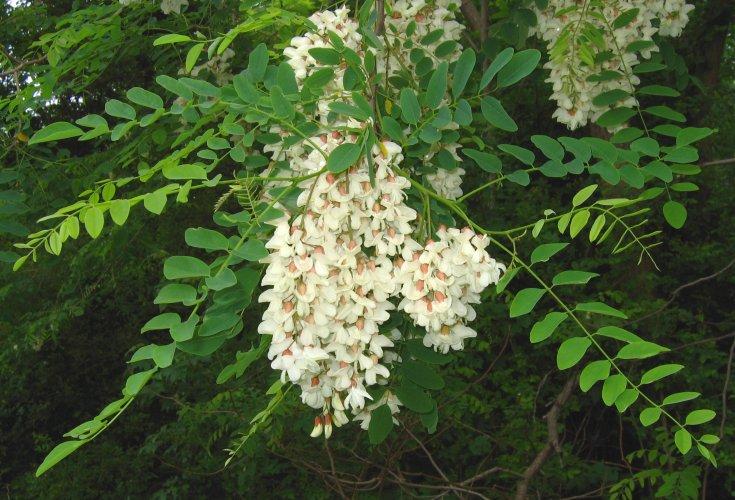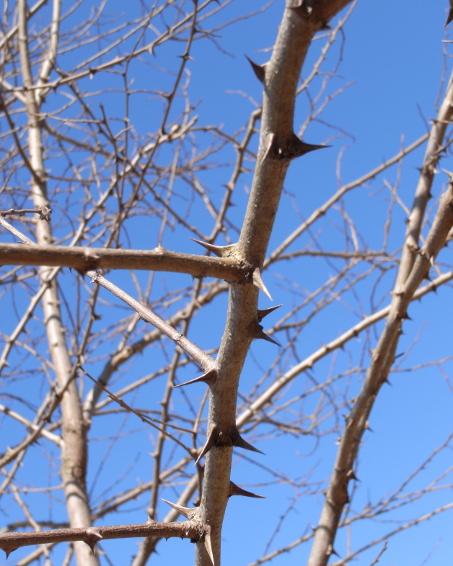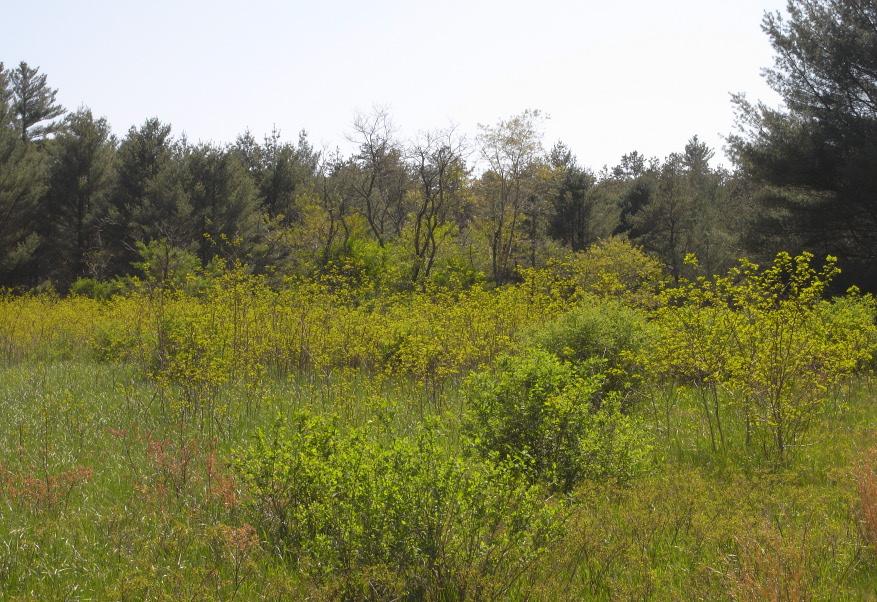Black Locust
Robinia pseudoacacia
Black locust is a medium-sized tree native to the southeastern United States. Considered to have the most durable wood among
American deciduous trees, it has been widely planted outside the native range. As a result, it became invasive, its propagation
and sales now banned in Massachusetts. It is common everywhere in Plymouth and present in Alper Preserve. This is an early
successional tree, a pioneer species growing best in bright sunlight. It colonizes disturbed open areas, being eventually
replaced with more shade-tolerant species. As any member of legume family, it enriches poor soil by means of atmospheric nitrogen
fixation, allowing other plants to move in. Its ability to produce multiple underground shoots, or suckers, contributes to
its weedy character: when disturbed, it can react by forming a dense, prickly brush. Young trees and sprouts are very spiny;
mature ones lose most spines. The dark bark is deeply furrowed, grooves and ridges often crossing and forming diamond shapes.
Leaves are compound, consisting of multiple paired leaflets and a single one at the tip. Drooping clusters of fragrant cream-white
flowers are produced in in May-June. Fruits are flat and smooth pea-like pods 2–4 x 0.5", each with 4-8 seeds. The seeds are
favored by bobwhite quail, other game birds, and squirrels. Woodpeckers may nest in the trunks of old trees infected by heart
rot.

Flowering, June 2

Prickly root suckers, March 22, Myles Standish SF, Plymouth

Root suckers from old trees, May 21, Myles Standish SF, Plymouth